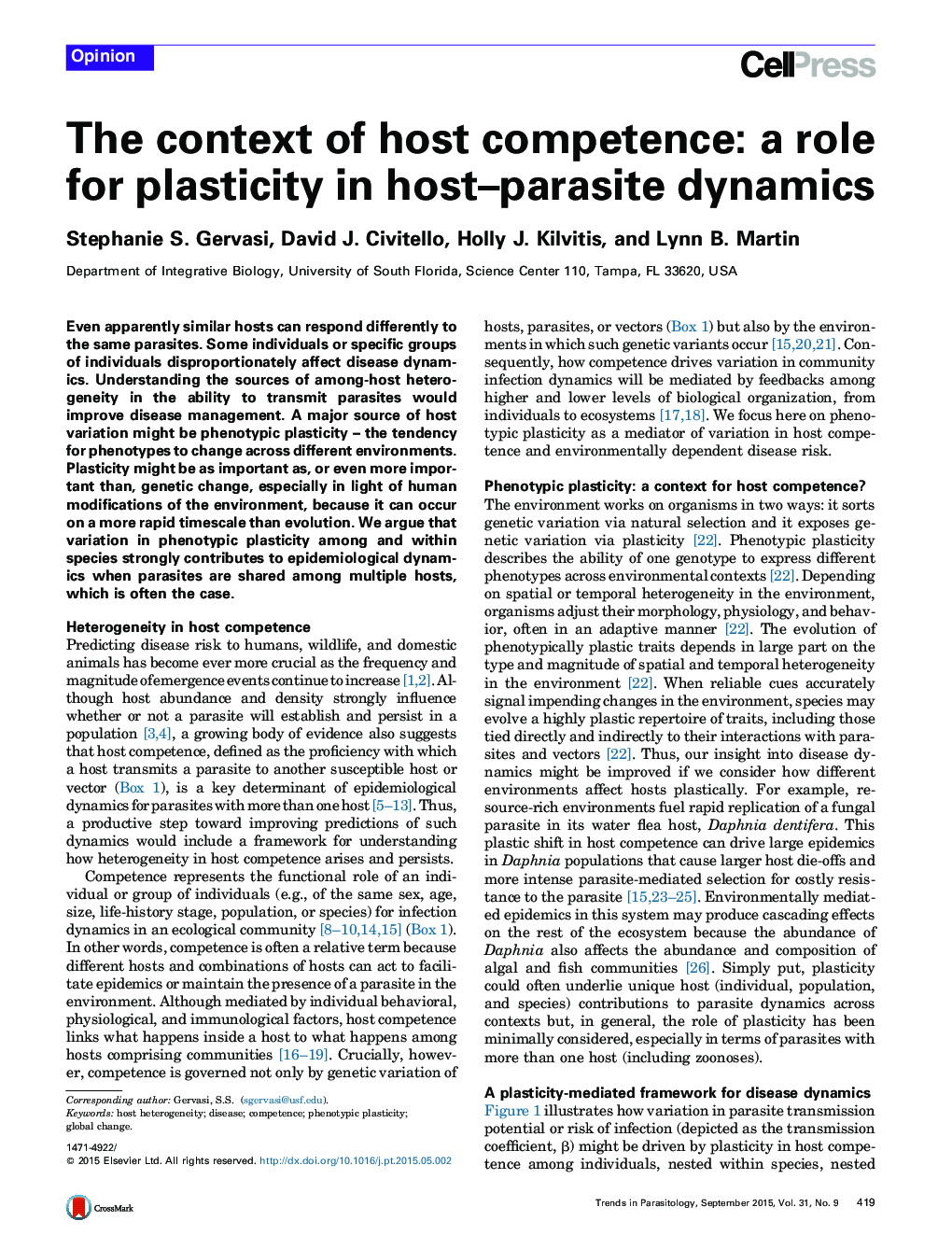| Article ID | Journal | Published Year | Pages | File Type |
|---|---|---|---|---|
| 3422907 | Trends in Parasitology | 2015 | 7 Pages |
•Most parasites can infect many hosts, but not all hosts contribute equally to epidemiological dynamics.•Identifying individuals and groups of individuals that contribute disproportionately to the emergence, spread, and persistence of parasites may be key to disease prevention and management.•Individuals, populations, and species are not static entities; the environment may shape interactions with parasites in a context-dependent way, and sometimes within-species variation can be as extensive as among-species variation.•Plasticity may change the way that hosts respond to parasites and contribute to zoonotic disease risk.
Even apparently similar hosts can respond differently to the same parasites. Some individuals or specific groups of individuals disproportionately affect disease dynamics. Understanding the sources of among-host heterogeneity in the ability to transmit parasites would improve disease management. A major source of host variation might be phenotypic plasticity – the tendency for phenotypes to change across different environments. Plasticity might be as important as, or even more important than, genetic change, especially in light of human modifications of the environment, because it can occur on a more rapid timescale than evolution. We argue that variation in phenotypic plasticity among and within species strongly contributes to epidemiological dynamics when parasites are shared among multiple hosts, which is often the case.
